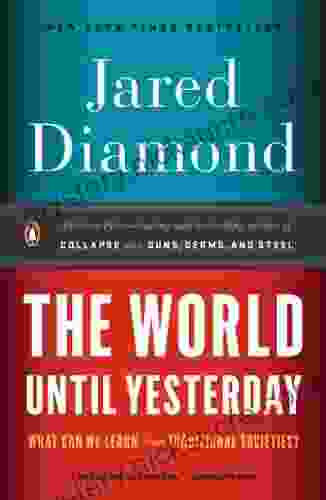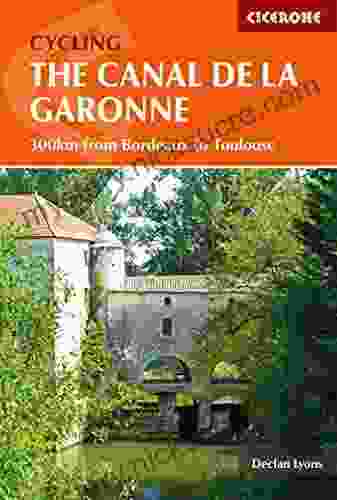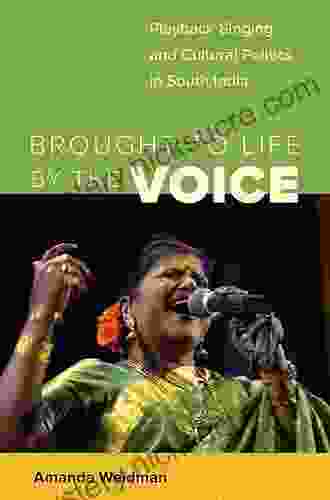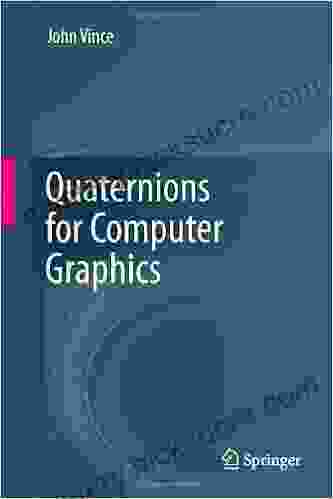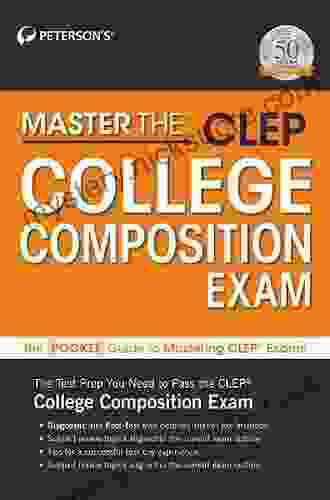The World Until Yesterday: What Can We Learn from Traditional Societies?

4.3 out of 5
| Language | : | English |
| File size | : | 12473 KB |
| Text-to-Speech | : | Enabled |
| Screen Reader | : | Supported |
| Enhanced typesetting | : | Enabled |
| Word Wise | : | Enabled |
| Print length | : | 544 pages |
In his book The World Until Yesterday, Jared Diamond explores the ways in which traditional societies differ from our own. He argues that we can learn a lot from these societies, and that they offer us a glimpse into our own past.
Diamond focuses on three main areas of difference between traditional and modern societies: social organization, child-rearing, and warfare. He argues that traditional societies are more egalitarian than modern societies, that they have a more cooperative child-rearing style, and that they are less violent than modern societies.
Diamond's book has been praised for its insights into human nature and for its challenge to the conventional wisdom about the superiority of modern societies. However, it has also been criticized for its oversimplification of traditional societies and for its lack of attention to the role of gender in these societies.
Social Organization
One of the most striking differences between traditional and modern societies is their social organization. Traditional societies are typically egalitarian, with little or no social stratification. This is in contrast to modern societies, which are typically hierarchical, with a clear division between the rich and the poor.
Diamond argues that the egalitarian social organization of traditional societies is more conducive to happiness and well-being than the hierarchical social organization of modern societies. He points to the fact that traditional societies have lower rates of crime, violence, and mental illness than modern societies.
Child-Rearing
Another major difference between traditional and modern societies is their child-rearing practices. Traditional societies typically have a more cooperative child-rearing style, with children being raised by the entire community. This is in contrast to modern societies, where children are typically raised by their parents alone.
Diamond argues that the cooperative child-rearing style of traditional societies is more beneficial to children than the individualistic child-rearing style of modern societies. He points to the fact that children raised in traditional societies are more likely to be happy, well-adjusted, and successful.
Warfare
The third major difference between traditional and modern societies is their attitudes towards warfare. Traditional societies are typically more peaceful than modern societies. This is due in part to the fact that traditional societies have less to gain from war and more to lose.
Diamond argues that the peaceful nature of traditional societies is a reminder that war is not an inevitable part of human nature. He points to the fact that there are many traditional societies that have never experienced war.
In The World Until Yesterday, Jared Diamond offers a fascinating glimpse into the lives of traditional societies. He argues that we can learn a lot from these societies, and that they offer us a valuable perspective on our own.
Diamond's book is a must-read for anyone interested in human nature, happiness, and well-being.
4.3 out of 5
| Language | : | English |
| File size | : | 12473 KB |
| Text-to-Speech | : | Enabled |
| Screen Reader | : | Supported |
| Enhanced typesetting | : | Enabled |
| Word Wise | : | Enabled |
| Print length | : | 544 pages |
Do you want to contribute by writing guest posts on this blog?
Please contact us and send us a resume of previous articles that you have written.
 Fiction
Fiction Non Fiction
Non Fiction Romance
Romance Mystery
Mystery Thriller
Thriller SciFi
SciFi Fantasy
Fantasy Horror
Horror Biography
Biography Selfhelp
Selfhelp Business
Business History
History Classics
Classics Poetry
Poetry Childrens
Childrens Young Adult
Young Adult Educational
Educational Cooking
Cooking Travel
Travel Lifestyle
Lifestyle Spirituality
Spirituality Health
Health Fitness
Fitness Technology
Technology Science
Science Arts
Arts Crafts
Crafts DIY
DIY Gardening
Gardening Petcare
Petcare Elizabeth Dupart
Elizabeth Dupart Earl G Williams
Earl G Williams Tibor Rutar
Tibor Rutar Joseph Moss
Joseph Moss Sheila A Sorrentino
Sheila A Sorrentino Douglas P Fry
Douglas P Fry Dick Hannula
Dick Hannula Steve Barrett
Steve Barrett Kathleen Flinn
Kathleen Flinn Suzanne Young
Suzanne Young Declan Lyons
Declan Lyons Nicola S Dorrington
Nicola S Dorrington Warwick Deeping
Warwick Deeping Bryce Carlson
Bryce Carlson Clement Salvadori
Clement Salvadori Albert Jeremiah Beveridge
Albert Jeremiah Beveridge Mark Stanton
Mark Stanton David Wilber
David Wilber Thomas Achatz
Thomas Achatz C F Crist
C F Crist Cassandra Mack
Cassandra Mack Denise May Levenick
Denise May Levenick Gary Lewis
Gary Lewis Nick Gamis
Nick Gamis Elaine Tyler May
Elaine Tyler May Dianne Maroney
Dianne Maroney Ian Leslie
Ian Leslie Elizabeth Laing Thompson
Elizabeth Laing Thompson Mike X Cohen
Mike X Cohen Kaplan Test Prep
Kaplan Test Prep Julietta Suzuki
Julietta Suzuki Sarah Prager
Sarah Prager Collins Easy Learning
Collins Easy Learning Leah Zani
Leah Zani Katherine D Kinzler
Katherine D Kinzler Jason Runkel Sperling
Jason Runkel Sperling Paul A Offit
Paul A Offit Tricia Levenseller
Tricia Levenseller Richard Bullivant
Richard Bullivant Dave Bosanko
Dave Bosanko Albert Rutherford
Albert Rutherford Michael D Alessio
Michael D Alessio Lina K Lapina
Lina K Lapina Chad Eastham
Chad Eastham Marla Taviano
Marla Taviano Nikki Carroll
Nikki Carroll Dvora Meyers
Dvora Meyers Jennifer Rose
Jennifer Rose William M Baum
William M Baum Rand Cardwell
Rand Cardwell Fmg Publications Special Edition
Fmg Publications Special Edition Sam Priestley
Sam Priestley R Scott Thornton
R Scott Thornton Daniel Prince
Daniel Prince Steven W Dulan
Steven W Dulan James W Anderson
James W Anderson Tyler Burt
Tyler Burt Della Ata Khoury
Della Ata Khoury Max Lugavere
Max Lugavere Kevin Howell
Kevin Howell Robert D Gibbons
Robert D Gibbons Ivan Gridin
Ivan Gridin Caleb J Tzilkowski
Caleb J Tzilkowski Jessica Holsman
Jessica Holsman Stephen King
Stephen King Sterling Test Prep
Sterling Test Prep Tom Bass
Tom Bass Sophie Messager
Sophie Messager Ronald T Potter Efron
Ronald T Potter Efron Ransom Riggs
Ransom Riggs Lily Raff Mccaulou
Lily Raff Mccaulou Sylvia Williams Dabney
Sylvia Williams Dabney Henry Malone
Henry Malone Joe Baker
Joe Baker Gary Mayes
Gary Mayes Ralph Galeano
Ralph Galeano Michael A Tompkins
Michael A Tompkins John Jamieson
John Jamieson Scott Hartshorn
Scott Hartshorn Peterson S
Peterson S Elizabeth Anne Wood
Elizabeth Anne Wood Elena Paige
Elena Paige Frederick Jackson Turner
Frederick Jackson Turner Huberta Wiertsema
Huberta Wiertsema William Ian Miller
William Ian Miller Leslie R Schover
Leslie R Schover Lauren Manoy
Lauren Manoy Maria Van Noord
Maria Van Noord Ian Tuhovsky
Ian Tuhovsky Meriwether Lewis
Meriwether Lewis Jasmine Shao
Jasmine Shao Michael Gurian
Michael Gurian Jim Warnock
Jim Warnock Dounya Awada
Dounya Awada Tim Freke
Tim Freke Sarah Baker
Sarah Baker Julie Golob
Julie Golob Elisabeth Elliot
Elisabeth Elliot Don S Lemons
Don S Lemons Melissa Mullamphy
Melissa Mullamphy Roger Marshall
Roger Marshall Winslow Tudor
Winslow Tudor Brandy Colbert
Brandy Colbert Meg Cabot
Meg Cabot Fiona Beddall
Fiona Beddall Valliappa Lakshmanan
Valliappa Lakshmanan Konstantinos Mylonas
Konstantinos Mylonas Nicola Yoon
Nicola Yoon E W Barton Wright
E W Barton Wright Lianna Marie
Lianna Marie Zachery Knowles
Zachery Knowles Craig Martelle
Craig Martelle Stedman Graham
Stedman Graham Mathew Orton
Mathew Orton Keith Brewer
Keith Brewer Matt Mullenix
Matt Mullenix John Moren
John Moren Jennifer L Scott
Jennifer L Scott Jim West
Jim West Richard Henry Dana
Richard Henry Dana Jared Diamond
Jared Diamond Elmer Keith
Elmer Keith Stephen Harrison
Stephen Harrison Tyler Trent
Tyler Trent Lee Jackson
Lee Jackson Marco Wenisch
Marco Wenisch Ruthellen Josselson
Ruthellen Josselson Tey Meadow
Tey Meadow Rowena Bennett
Rowena Bennett W D Wetherell
W D Wetherell David Tanis
David Tanis Michael Mewshaw
Michael Mewshaw William L Sullivan
William L Sullivan Samantha De Senna Fernandes
Samantha De Senna Fernandes Lsat Unplugged
Lsat Unplugged Dory Willer
Dory Willer Ashley Christensen
Ashley Christensen Orangepen Publications
Orangepen Publications Valerie Poore
Valerie Poore Silvia Dunn
Silvia Dunn Don Allen Jr
Don Allen Jr J R Rain
J R Rain Kelly Rowland
Kelly Rowland Terry Laughlin
Terry Laughlin Shelby Hailstone Law
Shelby Hailstone Law Matt Racine
Matt Racine Caitlyn Dare
Caitlyn Dare Wayne Coffey
Wayne Coffey Scott Mactavish
Scott Mactavish Sue Elvis
Sue Elvis Ashley Eckstein
Ashley Eckstein Robert Walker
Robert Walker Oprah Winfrey
Oprah Winfrey Jimmy Chin
Jimmy Chin Nicolas Bergeron
Nicolas Bergeron C J Archer
C J Archer Richard Drake
Richard Drake Lottie Bildirici
Lottie Bildirici Dan Flores
Dan Flores Shawna Richer
Shawna Richer David Nathan Fuller
David Nathan Fuller R L Medina
R L Medina Mona Bijjani
Mona Bijjani Issai Chozanshi
Issai Chozanshi Kevin A Morrison
Kevin A Morrison Mcgraw Hill
Mcgraw Hill Nawuth Keat
Nawuth Keat Jim Wiese
Jim Wiese Nick Tumminello
Nick Tumminello Phil Williams
Phil Williams Pam Flowers
Pam Flowers Carlos I Calle
Carlos I Calle Dr Tommy John
Dr Tommy John Charu C Aggarwal
Charu C Aggarwal Eugenia G Kelman
Eugenia G Kelman Robert Garland
Robert Garland J Maarten Troost
J Maarten Troost Joel Best
Joel Best Veronica Roth
Veronica Roth James Miller
James Miller Tina Schindler
Tina Schindler Tony E Adams
Tony E Adams Lingo Mastery
Lingo Mastery Paul Murdin
Paul Murdin Eric R Dodge
Eric R Dodge Donna R Causey
Donna R Causey Michael Tan
Michael Tan James Goi Jr
James Goi Jr Elizabeth May
Elizabeth May Veronica Eden
Veronica Eden Wilhelm Reich
Wilhelm Reich Vladimir Lossky
Vladimir Lossky David Eagleman
David Eagleman Mo Gawdat
Mo Gawdat Edward Humes
Edward Humes Lynn Butler Kisber
Lynn Butler Kisber Carol Inskipp
Carol Inskipp Tim S Grover
Tim S Grover Romola Anderson
Romola Anderson Charles Salzberg
Charles Salzberg Doug Cook
Doug Cook Chris Morton
Chris Morton Sarah Berman
Sarah Berman Matthew Warner Osborn
Matthew Warner Osborn John Kretschmer
John Kretschmer Judith Merkle Riley
Judith Merkle Riley Nicholas Tomalin
Nicholas Tomalin C S Lewis
C S Lewis Ron Rapoport
Ron Rapoport Jacob Erez
Jacob Erez Janet Evans
Janet Evans John Vince
John Vince Hugh Aldersey Williams
Hugh Aldersey Williams David Martin
David Martin Hibiki Yamazaki
Hibiki Yamazaki Chris Pountney
Chris Pountney Deirdre V Lovecky
Deirdre V Lovecky Destiny S Harris
Destiny S Harris Ronit Irshai
Ronit Irshai Jeff Scheetz
Jeff Scheetz Katharine Mcgee
Katharine Mcgee Dorothy Canfield Fisher
Dorothy Canfield Fisher Shyima Hall
Shyima Hall Sherri L Jackson
Sherri L Jackson Roger J Davies
Roger J Davies Bruce Van Brunt
Bruce Van Brunt Martha Finley
Martha Finley Mark Young
Mark Young Carrie Hope Fletcher
Carrie Hope Fletcher Cathy Glass
Cathy Glass Jim Supica
Jim Supica Lois Lowry
Lois Lowry Barbara Acello
Barbara Acello Gregory A Kompes
Gregory A Kompes M E Brines
M E Brines Erin Macy
Erin Macy Marc Van Den Bergh
Marc Van Den Bergh Pat Rigsby
Pat Rigsby Lewis Kirkham
Lewis Kirkham Paige Powers
Paige Powers Michael Lear Hynson
Michael Lear Hynson Stella Cottrell
Stella Cottrell Pia Nilsson
Pia Nilsson Bunmi Laditan
Bunmi Laditan Susan Orlean
Susan Orlean John H Falk
John H Falk Carrie Marie Bratley
Carrie Marie Bratley Theodora Papatheodorou
Theodora Papatheodorou Scott Cawthon
Scott Cawthon Arrl Inc
Arrl Inc Jim Al Khalili
Jim Al Khalili Cornelia Pelzer Elwood
Cornelia Pelzer Elwood Diane Lindsey Reeves
Diane Lindsey Reeves Ken Schwaber
Ken Schwaber Kevin Panetta
Kevin Panetta John Flanagan
John Flanagan Erin Beaty
Erin Beaty Aaron Reed
Aaron Reed Joanne V Hickey
Joanne V Hickey Richard C Francis
Richard C Francis William Ellet
William Ellet Peter J D Adamo
Peter J D Adamo Wyatt Mcspadden
Wyatt Mcspadden Lew Freedman
Lew Freedman Bryan Litz
Bryan Litz Bruce Maxwell
Bruce Maxwell Lucy Cooke
Lucy Cooke K C Cole
K C Cole Lisa Feldman Barrett
Lisa Feldman Barrett Laurie Notaro
Laurie Notaro Creek Stewart
Creek Stewart Cal Newport
Cal Newport Jennifer Appel
Jennifer Appel Upton Sinclair
Upton Sinclair Steve Guest
Steve Guest Max Prasac
Max Prasac Katie Fallon
Katie Fallon Freya Pickard
Freya Pickard Shmuel Goldberg
Shmuel Goldberg Helen Webster
Helen Webster Howard E Mccurdy
Howard E Mccurdy Paul Rabinow
Paul Rabinow Winky Lewis
Winky Lewis Dennis Adler
Dennis Adler Kacen Callender
Kacen Callender John Burroughs
John Burroughs Stian Christophersen
Stian Christophersen Fern Schumer Chapman
Fern Schumer Chapman Heather Jacobson
Heather Jacobson Jack Disbrow Gunther
Jack Disbrow Gunther Ed Housewright
Ed Housewright Trevelyan
Trevelyan William Rathje
William Rathje Dina Nayeri
Dina Nayeri Nigel Cawthorne
Nigel Cawthorne Leah Hazard
Leah Hazard John R Mabry
John R Mabry Richard W Voelz
Richard W Voelz Thomas Deetjen
Thomas Deetjen Sheri Morehouse
Sheri Morehouse Sara Gaviria
Sara Gaviria Ivy Hope
Ivy Hope Steven Kerry Brown
Steven Kerry Brown Vivian Foster
Vivian Foster Heather Balogh Rochfort
Heather Balogh Rochfort Greg W Prince
Greg W Prince Jack Canfield
Jack Canfield Anthony Camera
Anthony Camera Celeste Headlee
Celeste Headlee Melissa A Priblo Chapman
Melissa A Priblo Chapman Db King
Db King Dan Romanchik Kb6nu
Dan Romanchik Kb6nu Eric P Lane
Eric P Lane Kendall Rose
Kendall Rose Leon Speroff
Leon Speroff Linda Rosenkrantz
Linda Rosenkrantz Frank Muir
Frank Muir Richard Harding Davis
Richard Harding Davis Jonathan T Gilliam
Jonathan T Gilliam Mary Pagones
Mary Pagones Justin Coulson
Justin Coulson Helen Zuman
Helen Zuman Maha Alkurdi
Maha Alkurdi Carmen Davenport
Carmen Davenport Emt Basic Exam Prep Team
Emt Basic Exam Prep Team David Savedge
David Savedge Dave Rearick
Dave Rearick Jeff Belanger
Jeff Belanger Troy Horne
Troy Horne Kruti Joshi
Kruti Joshi Sonia Shah
Sonia Shah Matt Baglio
Matt Baglio John H Cunningham
John H Cunningham George Daniel
George Daniel Law School Admission Council
Law School Admission Council Michael Chatfield
Michael Chatfield Joyceen S Boyle
Joyceen S Boyle Martina D Antiochia
Martina D Antiochia Healthfit Publishing
Healthfit Publishing Cameron Mcwhirter
Cameron Mcwhirter Leslie A Sams
Leslie A Sams Skip Lockwood
Skip Lockwood Bruce W Harris
Bruce W Harris Caroline Manta
Caroline Manta Hecateus Apuliensis
Hecateus Apuliensis Matt Price
Matt Price Thomas Daniels
Thomas Daniels Jesse Romero
Jesse Romero Malika Grayson
Malika Grayson Francis Glebas
Francis Glebas Mark Hansen
Mark Hansen Neville Goddard
Neville Goddard David Cannon
David Cannon Jim Kempton
Jim Kempton Jane Brocket
Jane Brocket William Wood
William Wood Joanne Kimes
Joanne Kimes Pamela Weintraub
Pamela Weintraub Victoria Honeybourne
Victoria Honeybourne J R Harris
J R Harris Robert A Cutietta
Robert A Cutietta Sarah Ockwell Smith
Sarah Ockwell Smith Emma Warren
Emma Warren Lisa Hopp
Lisa Hopp Kevin Houston
Kevin Houston Narain Moorjani
Narain Moorjani The Atavist
The Atavist Lily Field
Lily Field Julia Ann Clayton
Julia Ann Clayton Megan Miller
Megan Miller Susan Garcia
Susan Garcia Larry Larsen
Larry Larsen Tanya Hackney
Tanya Hackney Kat Davis
Kat Davis Chris Bonington
Chris Bonington Byron L Reeder
Byron L Reeder Shea Ernshaw
Shea Ernshaw Ned Feehally
Ned Feehally Robert Moor
Robert Moor Sophie D Coe
Sophie D Coe Marisa Peer
Marisa Peer Ron Senyor
Ron Senyor Dian Olson Belanger
Dian Olson Belanger Philippe Karl
Philippe Karl Niels H Lauersen
Niels H Lauersen Sammy Franco
Sammy Franco Susan Frederick Gray
Susan Frederick Gray Phil Bourque
Phil Bourque Vincent Chidindu Asogwa
Vincent Chidindu Asogwa Christine Mari Inzer
Christine Mari Inzer Michael Blastland
Michael Blastland Stacey Rourke
Stacey Rourke Meghan Daum
Meghan Daum Maurice J Thompson
Maurice J Thompson Tim Glover
Tim Glover Bruce Sutherland
Bruce Sutherland Douglas Preston
Douglas Preston Emily Writes
Emily Writes Maren Stoffels
Maren Stoffels Scarlett V Clark
Scarlett V Clark Jeffrey L Kohanek
Jeffrey L Kohanek John Grehan
John Grehan Charles Staley
Charles Staley Graham Hancock
Graham Hancock Karen J Rooney
Karen J Rooney Natasha Ngan
Natasha Ngan Kyra Phillips
Kyra Phillips Jamie Marich
Jamie Marich Melanie Anne Phillips
Melanie Anne Phillips Duncan Steel
Duncan Steel John J Ratey
John J Ratey Simon Michael Prior
Simon Michael Prior Graham Norton
Graham Norton James Beard
James Beard Thomas Carothers
Thomas Carothers Nick Littlehales
Nick Littlehales Jess J James
Jess J James Sandra Niche
Sandra Niche C M Carney
C M Carney Mary C Townsend
Mary C Townsend Buddy Levy
Buddy Levy Jen Howver
Jen Howver Oliver Sacks
Oliver Sacks Max Lucado
Max Lucado Maxine A Goldman
Maxine A Goldman Kathy Woods
Kathy Woods Ira K Wolf
Ira K Wolf Kindle Edition
Kindle Edition Robert Edward Grant
Robert Edward Grant Dr Monika Chopra
Dr Monika Chopra Om Krishna Uprety
Om Krishna Uprety J D Williams
J D Williams Jill Angie
Jill Angie Lee Alan Dugatkin
Lee Alan Dugatkin S M Kingdom
S M Kingdom Matthew Marchon
Matthew Marchon Norman Thelwell
Norman Thelwell Rick Trickett
Rick Trickett Trevor Thomas
Trevor Thomas Cecil B Hartley
Cecil B Hartley Joseph Correa
Joseph Correa E Ink Utilizer
E Ink Utilizer Richard Barrett
Richard Barrett Natasha Daniels
Natasha Daniels Luc Mehl
Luc Mehl John M Marzluff
John M Marzluff Tamara Ferguson
Tamara Ferguson L W Jacobs
L W Jacobs Shaunti Feldhahn
Shaunti Feldhahn Rebecca Musser
Rebecca Musser Sarah Jacoby
Sarah Jacoby Bruce Watt
Bruce Watt Donna Goldberg
Donna Goldberg Emily Lowry
Emily Lowry Marc Bona
Marc Bona Lynette Noni
Lynette Noni Pedro Urvi
Pedro Urvi Craig Callender
Craig Callender Rob Pate
Rob Pate Kerry H Cheever
Kerry H Cheever Peter Bodo
Peter Bodo Martina Mcbride
Martina Mcbride Paul Lobo
Paul Lobo Martin Davies
Martin Davies Rita Golden Gelman
Rita Golden Gelman Guy Grieve
Guy Grieve Carole Bouchard
Carole Bouchard Nedu
Nedu Mark Stavish
Mark Stavish Marcia Scheiner
Marcia Scheiner Charles Sanger
Charles Sanger Philip Purser Hallard
Philip Purser Hallard Simon A Rego
Simon A Rego Olivier Doleuze
Olivier Doleuze Scott Mcmillion
Scott Mcmillion Ivar Dedekam
Ivar Dedekam Darcy Lever
Darcy Lever Ken Sande
Ken Sande Sallyann Beresford
Sallyann Beresford Tom Cunliffe
Tom Cunliffe Jessica Howard
Jessica Howard Michelle Travis
Michelle Travis Robert Larrison
Robert Larrison
Light bulbAdvertise smarter! Our strategic ad space ensures maximum exposure. Reserve your spot today!

 Walter SimmonsUnlocking Your Golfing Potential: A Comprehensive Guide to Sweet Sue Golf...
Walter SimmonsUnlocking Your Golfing Potential: A Comprehensive Guide to Sweet Sue Golf...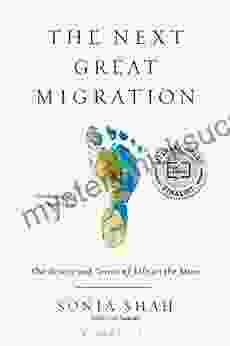
 Maurice ParkerThe Next Great Migration: Rethinking Climate Change, Labor, and the Global...
Maurice ParkerThe Next Great Migration: Rethinking Climate Change, Labor, and the Global... Nathan ReedFollow ·19.3k
Nathan ReedFollow ·19.3k Gus HayesFollow ·17.9k
Gus HayesFollow ·17.9k Edwin BlairFollow ·10.7k
Edwin BlairFollow ·10.7k William FaulknerFollow ·4.7k
William FaulknerFollow ·4.7k Aubrey BlairFollow ·8.8k
Aubrey BlairFollow ·8.8k Ryūnosuke AkutagawaFollow ·12.1k
Ryūnosuke AkutagawaFollow ·12.1k Philip BellFollow ·10k
Philip BellFollow ·10k Enrique BlairFollow ·14.5k
Enrique BlairFollow ·14.5k

 Henry David Thoreau
Henry David ThoreauHow To Bake In Unique Way: Unleash Your Culinary...
Baking is an art form that transcends the...
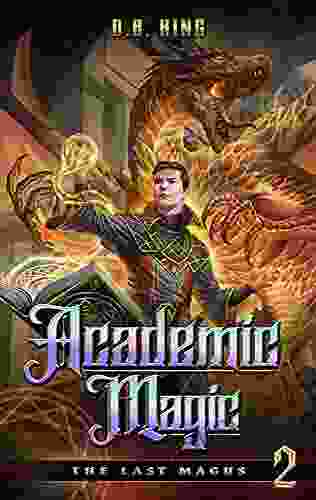
 F. Scott Fitzgerald
F. Scott FitzgeraldAcademic Magic: Unveil the Secrets of The Last Magus
Delve into a Realm of...
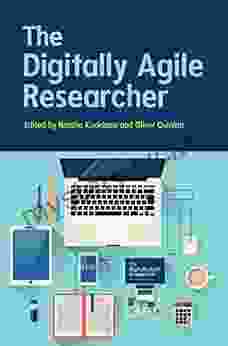
 John Green
John GreenThe Digitally Agile Researcher in UK Higher Education:...
In the rapidly...

 George Orwell
George OrwellZinc: Sources And Significance To Human Health
Zinc, an essential trace mineral, plays a...
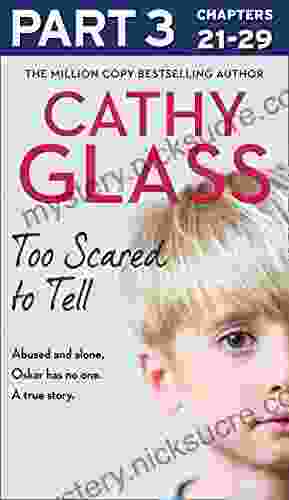
 Mario Simmons
Mario SimmonsToo Scared to Tell: A Harrowing and Thought-Provoking...
In the realm...
4.3 out of 5
| Language | : | English |
| File size | : | 12473 KB |
| Text-to-Speech | : | Enabled |
| Screen Reader | : | Supported |
| Enhanced typesetting | : | Enabled |
| Word Wise | : | Enabled |
| Print length | : | 544 pages |


